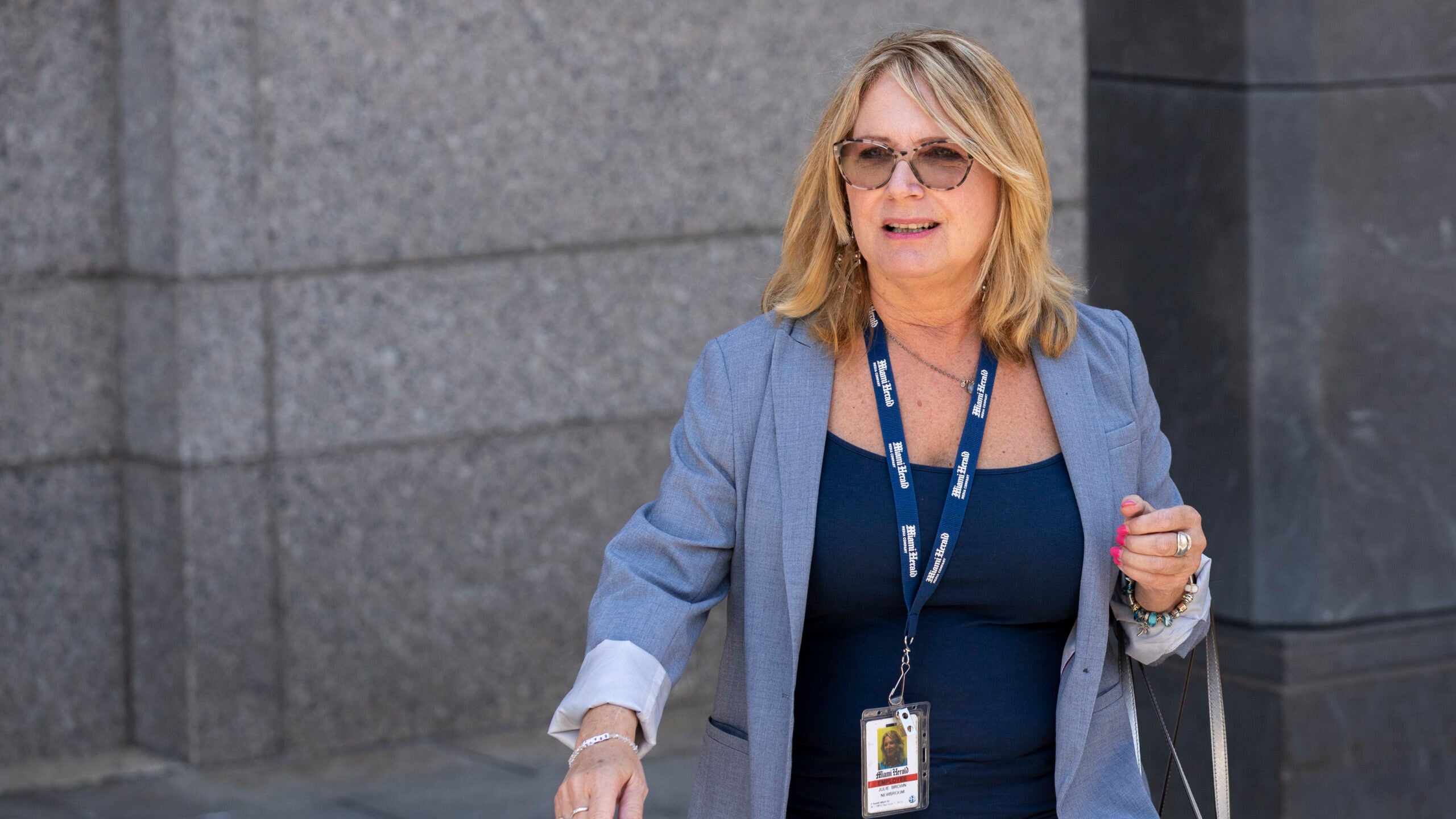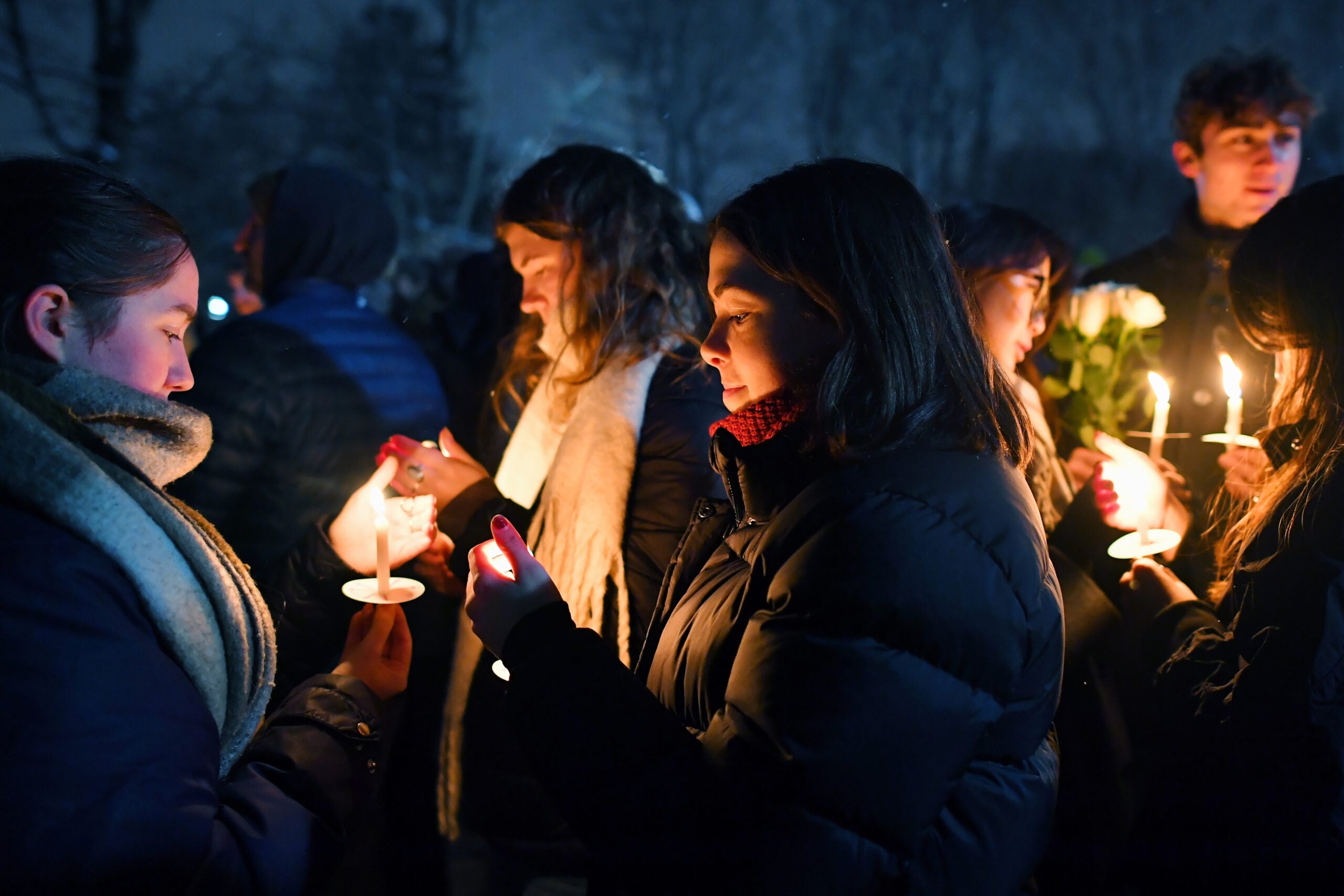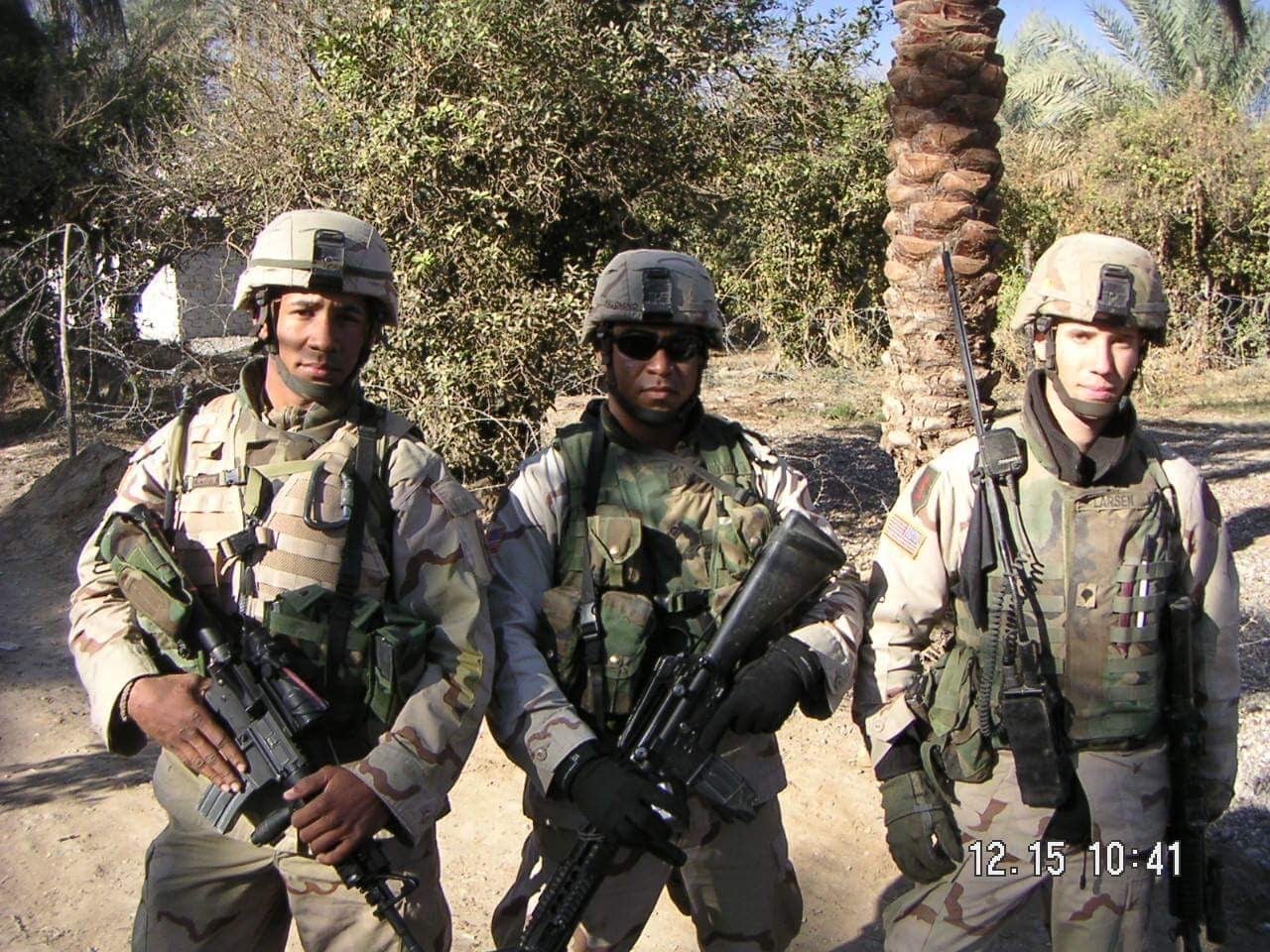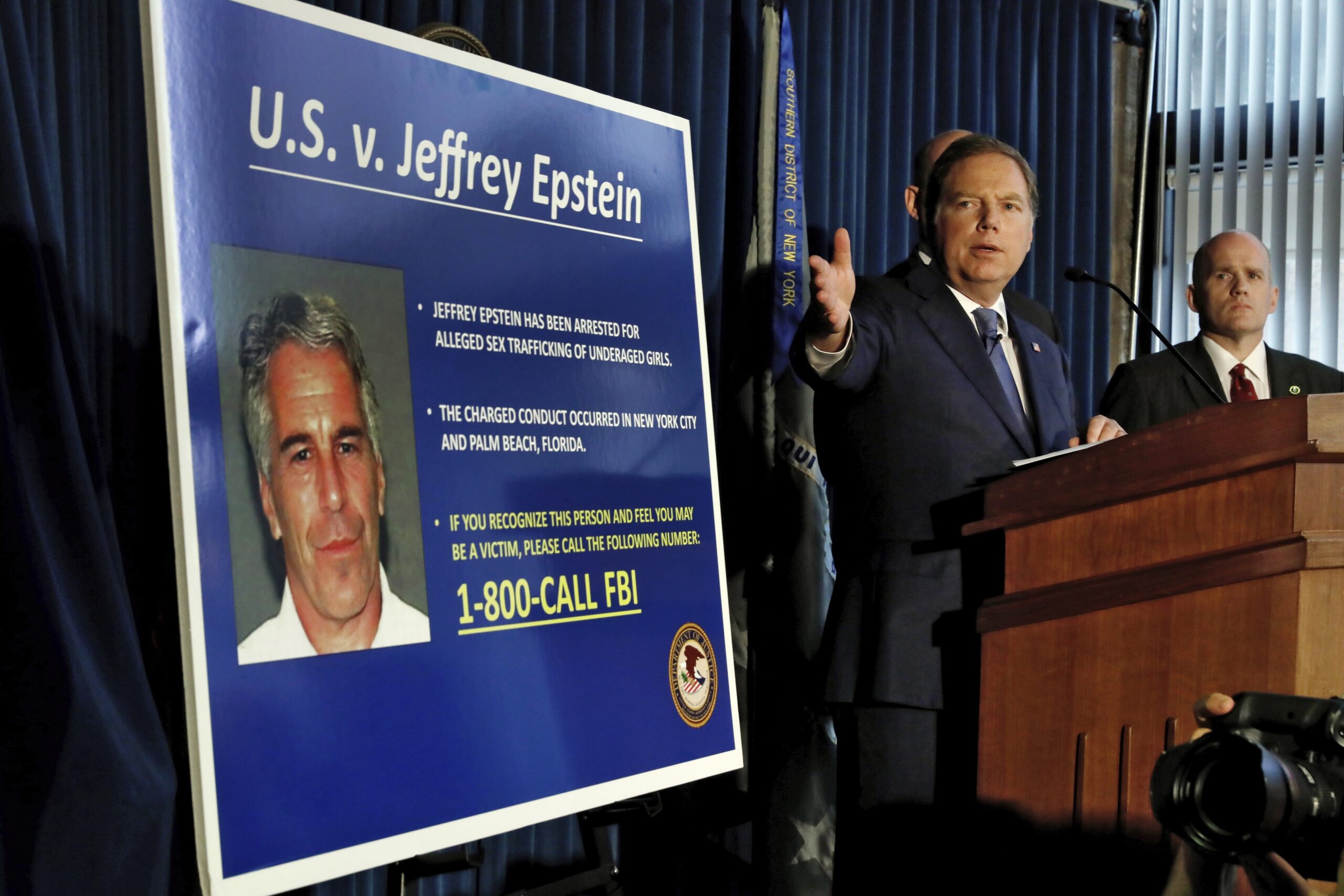Bill Clinton “likes them young.”
That’s just one of many allegations contained in several hundred pages of recently released court documents in a case brought against the sex trafficker and private financier Jeffrey Epstein.
One of Epstein’s victims says he made those remarks about the former president to her.
News with a little more humanity
WPR’s “Wisconsin Today” newsletter keeps you connected to the state you love without feeling overwhelmed. No paywall. No agenda. No corporate filter.
The documents were unsealed late Wednesday in a lawsuit brought by one of those victims.
Besides former president Clinton — who hasn’t been accused of anything and who denies knowledge of Epstein’s illegal activities — the documents include the names of dozens of powerful men with alleged connections to Epstein.
Donald Trump, magician David Copperfield, Prince Andrew and former Israeli Prime Minister Ehud Barak are also named.
Most of those publicly named — many of whom are already known to have links to Epstein — have denied any wrongdoing or knowledge of Epstein’s criminal activities. And the fact that people were named in these documents doesn’t mean any of them face allegations or evidence of wrongdoing. They are identified as having social connections to Jeffrey Epstein, who died by suicide in prison in 2019.
Investigative journalist Julie K. Brown’s reporting for the Miami Herald in 2017 and 2018 lead to more charges for Epstein and identified nearly 80 of his victims. She speaks with All Things Considered host Juana Summers about why is it important to know what’s in these documents.
This interview has been edited for length and clarity.
Interview highlights
Juana Summers: Have you been in touch with any of Epstein’s victims? And do you know at all how they’re feeling in this moment with this latest release?
Julie K. Brown: Well, I know that they want the truth to come out. They feel that this has been hidden for too long. And certainly, part of the mechanism in our system that has hidden a lot of what has transpired is our court system.
Summers: I mean, there are people out there, Julie, who are probably saying, “We already know this, there is not anything new here.” But I gather that you would argue that it’s important for these documents to be public, that it’s important for people to see what is in it. Why is that?
Brown: Well define “new.” No, there’s nothing in here that says “so-and-so committed a crime” or “so-and-so actually had sex with a certain person.” But these are people that clearly knew what Jeffrey Epstein was doing. They were either socially connected with him — in a couple of cases, we know of people that even talked openly about the fact that they knew Epstein was recruiting girls. Now, does that mean that they were guilty of anything? No. But I think to dismiss this because there’s nothing salacious or criminal in it is really short-sighted.
Listen to All Things Considered each day here or on your local member station for more interviews like this.
Summers: I don’t want to lose sight of the fact that this case and Epstein’s convictions stemmed from him victimizing young girls, children, but his crimes and these documents are also about relationships among rich and powerful people in our society. Can you explain how those very relationships may have helped him prey on his victims?
Brown: He was a bit of a braggart. I mean, we suspect that he may not have known some of the people that he claimed to these girls that he knew. He would say, for example, “I just got off the phone with Michael Jackson” — or whoever, I’m just using that as an example — he would tell these girls that. And then of course, they would be in his mansions and they would see photographs of him with world leaders and famous people. So he took advantage of that in order to, if nothing else, to intimidate these girls.
And that’s how he used his status. And anyone that socialized with him and who had dinners with him or visited his islands or went on his airplane, had to see him with some of these girls and young women and had to see the way that he operated.
Summers: We have been following the release of these new documents and there are still more to come. Julie, can you help us look ahead to what might be coming out in the future?
Brown: This is all been a mystery even to us, because they’ve been sealed for so long. So we really don’t know for certain. But one thing that we know from what’s been released so far is that these documents do tell a story. They tell a story of a man who had influence, who had power, who had money. And he was able to use all those things to abuse hundreds of girls. And we need to really examine how that happened and why it happened. Because unless we do that, these kinds of cases, the sex trafficking that happened here, is going to continue to happen.
Summers: As we mentioned, you have been covering this story for years. What do you think the legacy of the story of Jeffrey Epstein is.
Brown: I hope the legacy is that people don’t accept this kind of justice in America. That rich people, powerful people, wealthy people should not get special treatment. You know, people who are vulnerable and who don’t have a voice in our system are often prosecuted more fully and rigorously than people who have power and money. And that really is something that this story is an example of. And I think that we all have to question how that happens and why it happens, and our system needs to change.
9(MDAyMjQ1NTA4MDEyMjU5MTk3OTdlZmMzMQ004))
© Copyright 2025 by NPR. To see more, visit https://www.npr.org.9(MDAyMjQ1NTA4MDEyMjU5MTk3OTdlZmMzMQ004))







